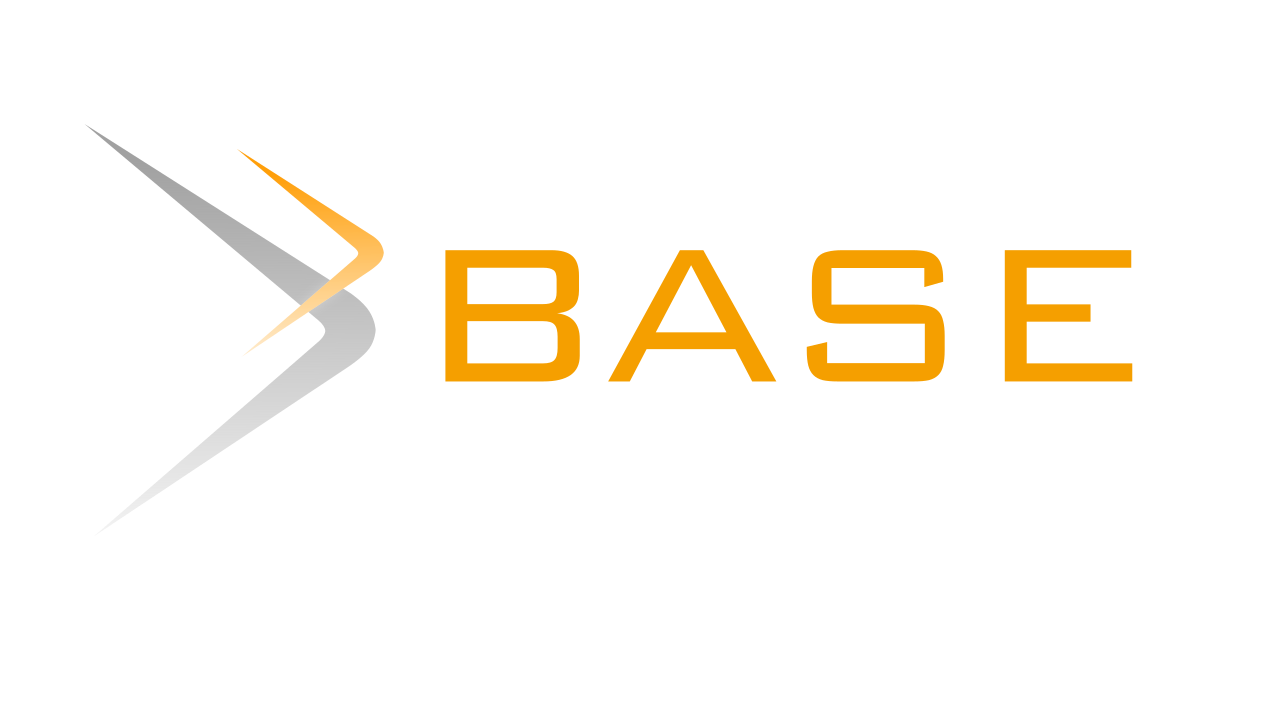Tax Avoidance: The Effect of Political Connection and Institutional Ownership
Keywords:
Political connection, institutional ownership, tax avoidanceAbstract
This study aims to test the effect of institutional ownership and political connection on tax avoidance. This study comprises 836 observations of firms in the non-financial industries from 2015-2018 listed on the Indonesia Stock Exchange. Multiple linear regression analysis with STATA 14 software is used. The result shows that political connections can be a tool to reduce tax avoidance, while institutional ownership effect tax avoidance only in the non-mining industry. The mining industry need wider pressure to mitigate the non-compliance on tax. The research may provide a deep insight the role of political connection especially for fiscal authority. It is a strengthen factor in the relation of the ownership and tax compliance. Furthermore, the character of industry doesn’t indicate that the certain industry has a higher potential to do incompliance
References
Abdul Wahab, E. A., Zain, M. and James, K. 2011. Political connections, corporate governance and audit fees in Malaysia. Managerial Auditing Journal, 26(5), 393-418. https://doi.org/10.1108/02686901111129562
Adhikari, A., Derashid, C. and Zhang, H. 2006. Public policy, political connections, and effective tax rates: Longitudinal evidence from Malaysia. Journal of Accounting and Public Policy, 25(5), 574-595. https://doi.org/10.1016/j.jaccpubpol.2006.07.001
Ajili, H. and Khlif, H. 2020. Political connections, joint audit and tax avoidance: evidence from Islamic banking industry. Journal of Financial Crime. https://doi.org/10.1108/JFC-01-2019-0015
Alkurdi, A. and Mardini, G. H. 2020. The impact of ownership structure and the board of directors' composition on tax avoidance strategies: empirical evidence from Jordan. Journal of Financial Reporting & Accounting (Emerald Group Publishing Limited), 18(4), 795-812. https://doi.org/10.1108/JFRA-01-2020-0001
Alzoubi, E. S. S. 2016. Ownership structure and earnings management: evidence from Jordan. International Journal of Accounting & Information Management, 24(2), 135-161. https://doi.org/10.1108/IJAIM-06-2015-0031
Amara, I. and Khlif, H. 2020. A review of the influence of political connections on management’s decision in non-US settings. Journal of Financial Reporting and Accounting, 18 (4), 687-705. https://doi.org/10.1108/JFRA-03-2020-0075
Antonetti, P. and Anesa, M. 2017. Consumer reactions to corporate tax strategies: The role of political ideology. Journal of Business Research, 74, 1-10. https://doi.org/10.1016/j.jbusres.2016.12.011
Armstrong, C. S., Glaeser, S. and Kepler, J. D. 2019. Strategic reactions in corporate tax planning. Journal of Accounting and Economics, 68(1), 101232
Ball, R. and Brown, P. 1980. Risk and return from equity investments in the Australian mining industry: January 1958—February 1979. Australian Journal of Management, 5(1-2), 45-66
Bird, A. and Karolyi, S. A. 2017. Governance and Taxes: Evidence from Regression Discontinuity. Accounting Review, 92(1), 29-50. 10.2308/accr-51520
Bleischwitz, R. 2014. Transparency in the Extractive Industries: Time to Ask for More. Global Environmental Politics, 14(4), 1-9. https://doi.org/10.1162/GLEP_e_00254
Chaney, P. K., Faccio, M. and Parsley, D. 2011. The quality of accounting information in politically connected firms. Journal of Accounting and Economics, 51(1-2), 58-76. https://doi.org/10.1016/j.jacceco.2010.07.003
Chen, S., Chen, X., Cheng, Q. and Shevlin, T. 2010. Are family firms more tax aggressive than non-family firms? Journal of Financial Economics, 95(1), 41-61. https://doi.org/10.1016/j.jfineco.2009.02.003
Cheng, Z., Wang, F., Keung, C. and Bai, Y. 2017. Will corporate political connection influence the environmental information disclosure level? Based on the panel data of A-shares from listed companies in shanghai stock market. Journal of Business Ethics, 143(1), 209-221
Desai, M. A. and Dharmapala, D. 2009. Earnings management, corporate tax shelters, and book-tax alignment. National Tax Journal, 62(1), 169-186. https://www.jstor.org/stable/41790634
Dyreng, S. D., Hanlon, M., Maydew, E. L. and Thornock, J. R. 2017. Changes in corporate effective tax rates over the past 25 years. Journal of Financial Economics, 124(3), 441-463. https://doi.org/10.1016/j.jfineco.2017.04.001
Faccio, M. 2006. Politically connected firms. American economic review, 96(1), 369-386. 10.1257/000282806776157704
Ferdiawan, Y. and Firmansyah, A. 2017. Pengaruh Political Connection, Foreign Activity, Dan, Real Earnings Management Terhadap Tax Avoidance. Jurnal Riset Akuntansi Dan Keuangan, 5(3), 1601-1624. 10.17509/jrak.v5i3.9223
Fisman, R. 2001. Estimating the value of political connections. American economic review, 91(4), 1095-1102. 10.1257/aer.91.4.1095
Francis, B. B., Hasan, I., Sun, X. and Wu, Q. 2016. CEO political preference and corporate tax sheltering. Journal of Corporate Finance, 38, 37-53. https://doi.org/10.1016/j.jcorpfin.2016.03.003
Hanlon, M. and Heitzman, S. 2010. A review of tax research. Journal of Accounting and Economics, 50(2-3), 127-178. https://doi.org/10.1016/j.jacceco.2010.09.002
Hasseldine, J. and Morris, G. 2013. Corporate social responsibility and tax avoidance: A comment and reflection. Accounting Forum, 37(1), 1-14. https://doi.org/10.1016/j.accfor.2012.05.001
Hijriani, A. N., Latifah, S. W. and Setyawan, S. 2017. Pengaruh Koneksi Politik, Dewan Komisaris dan Karakteristik Perusahaan terhadap Penghindaran Pajak (Perusahaan BUMN Yang Terdaftar di Bursa Efek Indonesia). Jurnal Reviu Akuntansi dan Keuangan, 4(1)
Huang, W. and Wright, B. 2015. Analyst earnings forecast under complex corporate ownership in China. Journal of International Financial Markets, Institutions and Money, 35, 69-84. https://doi.org/10.1016/j.intfin.2015.01.003
Iswari, P., Sudaryono, E. A. and Widarjo, W. 2019. Political connection and tax aggressiveness: A study on the state-owned enterprises registered in Indonesia stock exchange. Journal of International Studies, 12(1)
Jamei, R. 2017. Tax Avoidance and Corporate Governance Mechanisms: Evidence from Tehran Stock Exchange. International Journal of Economics and Financial Issues, 7(4)
Ji, X. D., Ahmed, K. and Lu, W. 2015. The impact of corporate governance and ownership structure reforms on earnings quality in China. International Journal of Accounting & Information Management, 23(2), 169-198. https://doi.org/10.1108/IJAIM-05-2014-0035
Jiang, G., Lee, C. M. and Yue, H. 2010. Tunneling through intercorporate loans: The China experience. Journal of Financial Economics, 98(1), 1-20. https://doi.org/10.1016/j.jfineco.2010.05.002
Jihene, F. and Moez, D. 2019. The Moderating Effect of Audit Quality on CEO Compensation and Tax Avoidance: Evidence from Tunisian Context. International Journal of Economics and Financial Issues, 9(1), 131. https://doi.org/10.32479/ijefi.7355
Khan, M., Srinivasan, S. and Tan, L. 2017. Institutional ownership and corporate tax avoidance: New evidence. The accounting review, 92(2), 101-122. https://doi.org/10.2308/accr-51529
Khlif, H. and Amara, I. 2019. Political connections, corruption and tax evasion: a cross-country investigation. Journal of Financial Crime, 26(2), 401-411. https://doi.org/10.1108/JFC-01-2018-0004
Khurana, I. K., Moser, W. J. and Raman, K. 2018. Tax avoidance, managerial ability, and investment efficiency. Abacus, 54(4), 547-575. https://doi.org/10.1111/abac.12142
Kim, C. and Zhang, L. 2016. Corporate political connections and tax aggressiveness. Contemporary Accounting Research, 33(1), 78-114. https://doi.org/10.1111/1911-3846.12150
Lanis, R. and Richardson, G. 2011. The effect of board of director composition on corporate tax aggressiveness. Journal of Accounting and Public Policy, 30(1), 50-70. https://doi.org/10.1016/j.jaccpubpol.2010.09.003
Lanis, R. and Richardson, G. 2013. Corporate social responsibility and tax aggressiveness: a test of legitimacy theory. Accounting, Auditing & Accountability Journal. https://doi.org/10.1016/j.jaccpubpol.2010.09.003
Li, L. and Islam, S. Z. 2019. Firm and industry specific determinants of capital structure: Evidence from the Australian market. International Review of Economics & Finance, 59, 425-437
Lin, K. Z., Mills, L. F., Zhang, F. and Li, Y. 2018. Do political connections weaken tax enforcement effectiveness? Contemporary Accounting Research, 35(4), 1941-1972. https://doi.org/10.1111/1911-3846.12360
Maccrimmon, K. R. and Wehrung, D. A. 1990. Characteristics of risk taking executives. Management science, 36(4), 422-435. https://doi.org/10.1287/mnsc.36.4.422
Maharani, F. S. and Baroroh, N. 2019. The Effects of Leverage, Executive Characters, and Institutional Ownership to Tax Avoidance With Political Connection as Moderation. AAJ: Accounting Analysis Journal, 8(2), 81-87. https://doi.org/10.15294/aaj.v8i2.30039
Martinez, A. L. 2017. Tax aggressiveness: a literature survey. Revista de Educação e Pesquisa em Contabilidade, 11, 104-121. https://doi.org/10.17524/repec.v11i0.1724
Merslythalia, R. and Lasmana, M. S. 2017. Pengaruh Kompetensi Eksekutif, Ukuran Perusahaan, Komisaris Independen, dan Kepemilikan Institusional terhadap Tax Avoidance. Jurnal Ilmiah Akuntansi dan Bisnis, 11(2), 117-124. https://doi.org/10.24843/JIAB.2016.v11.i02.p07
Moore, J. A. 2012. Empirical evidence on the impact of external monitoring on book–tax differences. Advances in Accounting, 28(2), 254-269. https://doi.org/10.1016/j.adiac.2012.06.002
Noor, R. M. and Sabli, M. Tax Planning and Corporate Governance. International Conference on Business and Economic Research (3rd ICBER) Proceeding, 2012.
Peyer, U. and Vermaelen, T. 2016. Political affiliation and dividend tax avoidance: Evidence from the 2013 fiscal cliff. Journal of Empirical Finance, 35, 136-149. https://doi.org/10.1016/j.jempfin.2015.10.009
Prebble, Z. and Prebble, J. 2009. The morality of tax avoidance. Creighton L. Rev., 43, 693
Roberts, I. and Zurawski, A. 2016. 12. changing patterns of corporate leverage in China: evidence from listed companies. China’s New Sources of Economic Growth, 271
Shen, Y., Gao, D., Bu, D., Yan, L. and Chen, P. 2019. CEO hometown ties and tax avoidance‐evidence from China's listed firms. Accounting & Finance, 58(5), 1549-1580. https://doi.org/10.1111/acfi.12442
Tiara Riza Falistiani, P. and Trisni, S. 2017. Factors Affecting Tax Avoidance on Manufacturing Companies Listed on IDX. AAJ: Accounting Analysis Journal, 6(3), 407-419. https://doi.org/10.15294/aaj.v6i3.18198
Wahab, E. a. A., Zain, M. M. and James, K. 2011. Political connections, corporate governance and audit fees in Malaysia. Managerial Auditing Journal, 26(5), 393-418. https://doi.org/10.1108/02686901111129562
Wang, X. Tax avoidance, corporate transparency, and firm value. American Accounting Association Annual Meeting-Tax Concurrent Sessions, 2011.
Xu, W., Zeng, Y. and Zhang, J. 2011. Tax enforcement as a corporate governance mechanism: empirical evidence from China. Corporate Governance: An International Review, 19(1), 25-40. https://doi.org/10.1111/j.1467-8683.2010.00831.x
Ying, T., Wright, B. and Huang, W. 2017. Ownership structure and tax aggressiveness of Chinese listed companies. International Journal of Accounting & Information Management, 25(3), 313-332. https://doi.org/10.1108/IJAIM-07-2016-0070
Zain, M. 2008. Manajemen perpajakan, Jakarta, Salemba Empat.
Zhao, C. X., Meng, L., Taylor, G. and Richardson, G. 2020. Let’s get connected: The effect of directors connected to a tax office on corporate tax avoidance in China. Journal of Accounting and Public Policy. https://doi.org/10.1016/j.jaccpubpol.2020.106817
Downloads
Published
How to Cite
Issue
Section
License
Copyright (c) 2023 Breverdy Putrananda Manihuruk, Santi Novita

This work is licensed under a Creative Commons Attribution-ShareAlike 4.0 International License.













